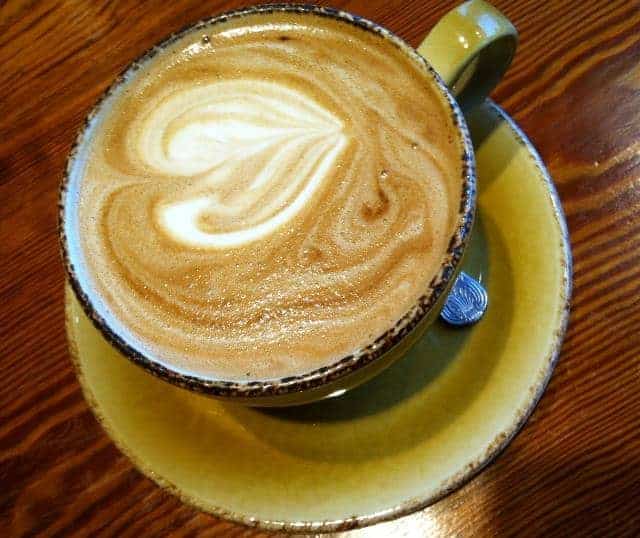
By Alex Ivett
WHEN is a family-owned artesian coffee shop exactly none of those things?
Or, in our globalised world of mass production, focus groups and convenience, is the question rather — should we continue to search for the individually crafted experience when corporate momentum seems to favour genericism? Albeit, at least dressed up as a uniquely tailored offering.
It’s the ultimate paradox. In the search to be truly individual, it’s more than likely you’ll end up engaged in the exact opposite — a mass-produced experience designed exactly to satisfy your personally crafted wants and needs. A carefully designed corporate product which allows you to sip your reasonably priced generic coffee from a chipped pastel cup and sit in mismatched, low-slung chairs whilst still enjoying free wifi. Allowing you to think, yes, there may well be thousands of others all doing exactly what I’m doing at this point in time, but I am still special. I am different.
Coffee Cult is as guilty of this as anyone. In fact, the whole column is based on discovering the undiscovered and introducing these gems to a caffeine-hungry expat community. Of hunting the hidden — the alleyway hidey-holes with the crates for seats, the market pop-ups and the corner-store café with the local artists on the wall. Well, at least the ones with an Antipodean connection.
The Crucials and the Craic
That’s why, when visiting the living paradox that is Tesco co-owned coffee chain Harris + Hoole, we’re confronted with an identity-shaking conundrum. It has the hallmarks of a potential Coffee Cult favourite — the scrawled blackboard menu lining a wall, cucumber-infused water and vintage wooden décor. A laid-out selection of cakes, muffins, banana bread and pastries draws us tantalisingly closer, before finally deciding on a light and delicious ham and cheese croissant.

All in all, it does successfully achieve a feeling of individuality — if you didn’t already know there were a number of cafes all identically individual across the city. The distressed tables and differently coloured chairs all look carefully stage-managed and a number of added extras contribute to a sense of corporate efficiency — three sizes of coffee, standardized fare and a buzzer system to collect your products once instructions have been passed down the well-staffed line.
Most importantly the coffee, well, it’s not great. It tastes like chain-store coffee often does — bitter and frothy. It’s like the coffee itself refuses to play along in Harris + Hoole’s ‘artesian coffee-shop’ game.
The Connection
The name itself is another pull at the heartstrings of the individualised consumer. Those who like to feel like they’re ingesting history along with their morning buzz. It refers to an entry from the diary of Samuel Pepys, a 17th century businessman, who detailed a night in February 1664 when he stopped at a ‘great Coffee-house’ with ‘Harris the player, and Mr Hoole of our College’ to engage in witty and pleasant discourse.
The brains behind Harris + Hoole, Australian siblings Nick, Andrew and Laura Tolley, pay tribute to the diary entry with their ostensible aim of continuing the tradition of bringing people together through good coffee. It is an aim successfully achieved in their other coffee venture — the eight-chain Taylor Street Baristas dotted across London. It does however rely on one factor — the coffee — and it is unclear to Coffee Cult whether it is an aim shared by corporate co-owners of Harris + Hoole, Tesco.

The Conclusion
The concept of an artesian family-owned coffee-shop invokes certain images in the consumer’s mind, many of which are realised in chain-store Harris + Hoole. However, if the aim is to convince the consumer they’re engaging in an individualised experience, there is only one fundamental that can’t be overlooked — a decent cup of coffee.
Harris + Hoole
Various locations across London












